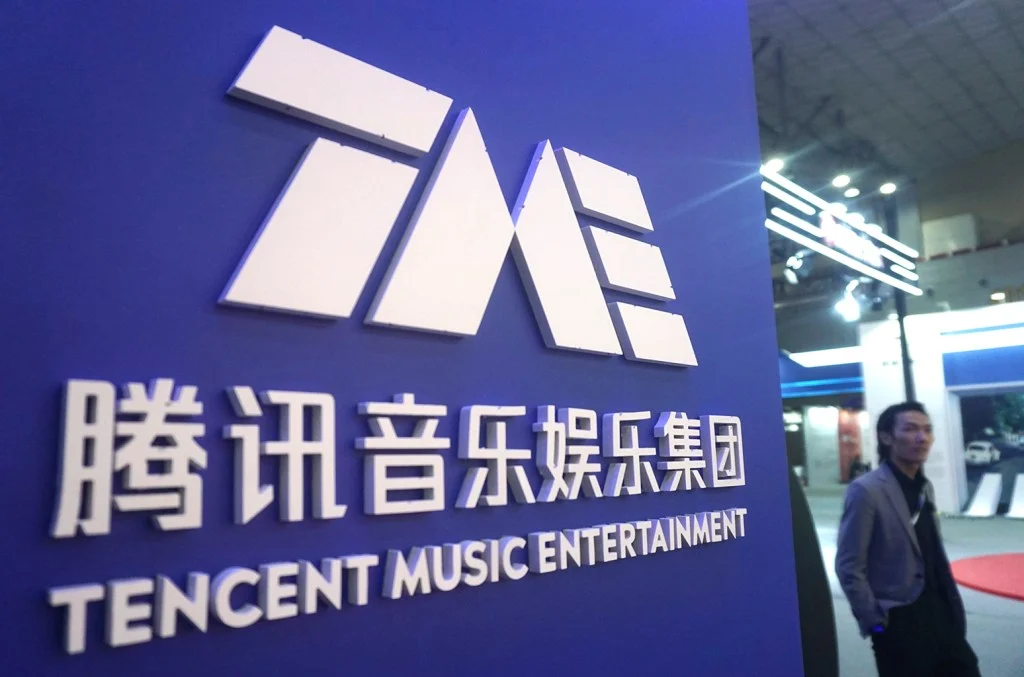China
Trending on Billboard
With the single “Quagmire,” Mandarin singer Zi Yu claimed the top spot in the Vol.01 September Selection of “Star Power Monthly Selection” (held by Billboard China, Tencent Music’s QQ Music and JOOX platforms).
From constant experimentation to commanding the stage, from wearing the “newcomer” label to earning “champion” recognition, Zi Yu has achieved a striking breakthrough with “Quagmire,” emerging as one of the most promising new voices in Chinese music.
The sound of “Quagmire” now lingers as the defining memory of this past September. We look forward to seeing the boy who once rose from the mud continue to dig, through his music, toward a vaster world.
Below, Li Shi Jue, the songwriter of “Quagmire,” speaks with Billboard China to decode the creative force behind the very first “Star Power Monthly Selection” champion song.
Zi Yu
Billboard China
The song Quagmire has resonated widely with listeners. Were you surprised? What do you think made it so moving?
Li Shi Jue: I was a bit surprised, yet not entirely, because our team actually wrote this song a few years ago. Its theme and melodic line have a retro, catchy quality, the kind that naturally evokes emotional resonance. Songs from that same creative period included Dislocated Space-Time, which later became a big hit. I think what really touches people is the combination of a simple, memorable melody and straightforward, relatable lyrics, brought to life by Zi Yu’s heartfelt performance. The overall listening experience just flows smoothly. When we wrote it, we only wanted to capture honestly the feeling of being stuck in a certain emotion or situation. We never imagined it would be embraced by so many people. Looking back now, perhaps what moved listeners was its authenticity — that tangled obsession of “wanting to break free yet sinking deeper,” a struggle everyone encounters at some point in life. The song doesn’t preach any grand truths; it simply passes on the feeling of “breathing inside the Quagmire,” and somehow, someone out there heard their own echo in it.
When writing “Quagmire,” what core emotion or idea did you most want to express? Where did the original inspiration come from?
What I wanted most to convey was a state of emotion—it could be my own feelings, or projections of many different kinds of emotions. It’s about recalling past experiences, being overwhelmed by sadness, crying awake in the middle of the night, falling asleep only to wake up crying again. That cycle of repeating pain mirrors the song’s looping melody. The inspiration naturally came from life: once you’ve lived through something like that, you can’t help but write it down. I believe everyone has their own “Quagmire moment”—a low point in life. It’s not about the inspiration of “getting out of the Quagmire,” but about the courage to “stand firm within it”. The earliest ideas came in fragments: seeing friends torment themselves over a goal that fell through; watching someone repeatedly edit and delete late-night social media moments out of confusion; or even my own frustration when I get stuck—when the harder I try to write, the less I can. These scattered moments came together like scenes of many people circling in their own “Quagmires,” and suddenly I wanted to write a song to tell listeners: It’s okay to be stuck. You don’t have to force yourself to climb out right away. Take a look at the soil beneath your feet—maybe something can grow from it.
When creating music, what do you value most? Does “Quagmire” reflect this philosophy?
When I write songs, I care most about the completeness and directness of the story, and about how catchy the melody is. I used to pursue more avant-garde arrangements or melodies to create relatively niche works, but as I’ve grown older, I’ve realized that what sounds truly good is often simple. “Quagmire” embodies exactly that belief. What I value most is accuracy—not technical precision, but emotional accuracy, staying true to the feeling. For example, the line “tears reach my lips, a little salty” wasn’t written just to rhyme; it’s meant to capture that physical detail of “trying to hold back your tears halfway through crying”. That kind of specific pain carries more weight than simply shouting “I’m so sad”. Quagmire achieves that—it doesn’t rely on ornate language. It sings of tangible emotions: “the darkness when you turn away,” and “the sweetness in dreams and the tears upon waking”. It’s like laying bare the creases of your heart for others to see, without hiding, without pretense.
What special charm do you think Zi Yu’s performance brings to this song?
Zi Yu truly infused this song with a special kind of magic. He’s a young, energetic singer of the new generation, while I wrote the song with a deliberately retro sensibility in mind. That collision between the “new” and the “old” gave “Quagmire” a fresh soul. There’s a kind of restrained resilience in Zi Yu’s voice that fits the song’s temperament perfectly. He doesn’t use explosive power to express the pain of being trapped in the Quagmire; instead, he shapes the details with soft, airy tones. In the line “repeating the sorrow again and again,” you can catch a faint, almost imperceptible tremor. That choice to hold back instead of crying out actually makes the struggle within the “Quagmire” feel more real. It’s like how, in real life, people in distress don’t always scream; more often, they wrestle silently with themselves. And Zi Yu managed to sing out the weight of that silence.
For listeners who found resonance in “Quagmire” and those who might be going through their own “Quagmire moment,” what would you most like to say to them?
If you happen to be living through your own “Quagmire” right now, tell yourself: let the storm rage on. Only time can heal, and there’s no other cure. If you’ve parted ways with someone, don’t disturb their life again. This experience might one day become one of the most beautiful memories on your journey. And when you emerge from the storm, safe and whole, you’ll no longer be the same person you once were. Stay strong!
At the same time, I want everyone to know: you’re not the only one sinking. Every life has stretches of road where people just can’t seem to move forward. Don’t rush to deny yourself, wondering “why haven’t I climbed out yet,” and don’t envy others who seem to have it easier. First, acknowledge “I’m here, right now,” and then take a look beneath your feet—those things that hurt you or twist and hold you down may quietly be helping you put down roots. And perhaps one day, when courage returns, you’ll be ready to step out of the mire—slowly, but surely.
In your songwriting process, are there any particular habits or principles you always stick to, and how do you deal with doubts or criticism?
In my songwriting process, I don’t worry about whether the lyrics or the melody come first. Sometimes I start with the words, sometimes with the tune, but most of the time they emerge together. What I care most about is the first feeling. When a melody suddenly comes to mind, I usually decide on it right away, because the more you revise, the further you drift from your original intention. That’s why I tend to write songs quickly.
With “Quagmire,” for example, the image of the Quagmire came first, and from there the melody and lyrics gradually grew. For me, letting emotions flow naturally is far more important than following a rigid process.
In fact, every song carries its own unique expression and emotion—each differs in theme, harmony design, and arrangement style. There are plenty of works out there that sound similar in mood or atmosphere, but art ultimately comes from life—and respecting originality matters most.
Zi Yu
Billboard China
Luminate has announced a new global data partnership with Tencent Music Entertainment (TME), marking the company’s first data collaboration with a chart that measures music engagement in China, the companies announced Wednesday (Nov. 5).
Under the agreement, Luminate, Billboard‘s longtime data partner, will integrate streaming and sales metrics from TME’s platforms — including QQ Music, Kugou Music, Kuwo Music and JOOX — into its music data platform CONNECT. The data will be reflected on CONNECT in the coming weeks and integrated into Billboard‘s global charts on a date yet to be announced. This marks the first time Chinese music market activity will be measured and reflected on the Billboard global charts.
Related
Wednesday’s news represents the latest international expansion for Luminate, which now tracks data for more than 60 countries, with other recent additions in the Middle East and North and Sub-Saharan Africa. With the addition of TME to its data set, the company will be able to identify the appeal of genres and artists originating in China across markets.
Notably, in 2023, the TME UNI Chart became the first music chart from the Chinese Mainland to be featured on Billboard‘s U.S. website.
“This partnership marks a pivotal moment for the global music industry, underscoring Luminate’s unwavering commitment to providing the most accurate and comprehensive measurement of music activity worldwide,” said Luminate CEO Rob Jonas in a statement. “As the industry’s most trusted source of streaming and sales data, our customers and partners expect as much information as possible to make the best business decisions, and we know how valuable it is for a market as large and influential as China to be represented in those insights.”
Added TC Pan, group vp of TME and president of the Content Cooperation Department, “This collaboration with Luminate represents a data-driven effort to establish a unified global content ecosystem. China is one of the most dynamic music markets in the world, and through this partnership, all content on TME’s platforms — whether domestic or international — will participate in, and even help shape, global music trends. Moving forward, TME will continue to strengthen its content ecosystem, enabling more quality content to be discovered worldwide, realizing long-term value through a journey from ‘data connectivity’ to ‘ecosystem synergy.’”
Also weighing in was Ryan Liang, vp of corporate development and content system at TME, who said, “Our partnership with Luminate marks TME Chart as Billboard’s first in-depth data partner in China,which demonstrates that its objectivity and professionalism have gained recognition from international authorities. We see this partnership as an opportunity to further strengthen the TME Chart’s role as a bridge connecting Chinese music with the global market. By integrating China’s music data into the global chart ecosystem, we are dedicated to delivering Chinese music to a broader audience and enhancing its international recognition.”

Trending on Billboard
Global gaming powerhouse Honor of Kings has dropped its 10th-anniversary theme song “Atlas of Tomorrow,” now streaming across major platforms including Tencent Music Entertainment’s QQ Music, Kugou and Kuwo, alongside Apple Music, Spotify and KKBOX. The track shot to No. 1 across multiple charts upon release, cementing itself as the latest blockbuster crossover between Mandopop and globally influential game IPs.
“Atlas of Tomorrow” boasts composition and vocals by JJ Lin, brand ambassador of Honor of Kings, Mandopop heavyweight and two-time Golden Melody Awards winner for best male singer, and lyrics by Kevin Yi, hitmaker and senior music planner. JJ Lin describes the track as “dedicated to every dreamer still writing their future chapters, letting music guide you to the stories we’re meant to live.” The track shot to No. 1 on QQ Music, Kugou and other major Chinese streaming charts upon its release. As of publication, it has racked up more than 2 million saves across platforms, generated 70-plus trending topics on social media, and amassed more than 600 million views, shattering multiple records for gaming music.
Notably, the impact of “Atlas of Tomorrow” has expanded from the realms of music and gaming into an online cultural co-creation movement spanning multiple regions. Over 280 tourism boards across mainland China, from Beijing to Guizhou to Zhejiang, have spontaneously paired the track as a soundtrack with local landmarks and cityscapes for videos, triggering a viral relay across short-video platforms.
“Atlas of Tomorrow” centers on the theme of “Gathering for Journey.” The profound resonance of its melody and lyrics stems from its ability to encapsulate a decade’s worth of emotional memories and energy accumulated within Honor of Kings, a beloved national IP. Therefore, the work transcends mere melody, becoming players’ response to their youth and stories. The track’s overwhelming reception among gamers and music fans worldwide following its release reflects both the song’s exceptional craftsmanship and emotional depth, as well as the formidable cultural influence and crossover appeal that Honor of Kings commands.
Through this partnership, TME empowers the gaming IP to achieve multidimensional expression across visuals, gameplay and audio via content co-creation and integrated campaigns. The collaboration underscores music’s expanding cultural role and reach within gaming ecosystems. Moving forward, TME remains committed to deepening strategic alliances with globally influential cultural IPs, promoting music’s unique power across diverse cultural content ecosystems and helping high-quality original voices reach a wider international audience.
From June 6-8, G-DRAGON performed three dates of his 2025 WORLD TOUR [Übermensch] IN MACAU. Streaming platform QQ Music logged over 7 million users online simultaneously while promoting the show, demonstrating the overwhelming anticipation for the Macau stop. G-DRAGON delivered three consecutive, sold-out performances at Galaxy Arena, bringing the Macau stop to a spectacular close. […]
Universal Music Group has announced the expansion of two of its most storied labels — Deutsche Grammophon and Blue Note Records — into greater China, marking a significant move to tap into the country’s rapidly growing classical and jazz music scenes.
“At UMG, we are committed to supporting the development of diverse music cultures around the world,” said Adam Granite, UMG’s executive vice president of market development. “The launch of Deutsche Grammophon China and Blue Note Records China reflects this vision in action and marks a meaningful step forward in the evolution of our multi-label operations in the market.”
Announced at an event in Shanghai this week, Deutsche Grammophon China will focus on discovering and promoting new classical talent across China, plus provide artists with access to UMG’s global resources, including recording, international promotion and touring. Chinese musicians Lang Lang, Yuja Wang and Long Yu will serve as artistic advisors, guiding the label’s artistic direction.
Trending on Billboard
DG China’s debut release, Bach: The Cello Suites by acclaimed cellist Jian Wang, is set for May 23. Additionally, DG China will collaborate with the Shanghai Symphony Orchestra to record and release the complete Shostakovich Symphonies by 2029, celebrating the orchestra’s 150th anniversary.
Dr. Clemens Trautmann, president of Deutsche Grammophon, highlighted the label’s growing presence in China over the past decade and noted that the partnership with Blue Note and the involvement of international artists underscore UMG’s global reach and creative ambition. “We are proud to co-invest in the future generation of outstanding classical performers from Greater China, together with our esteemed colleagues at UMGC to foster the success of amazing new talent across recording, touring and brand partnerships,” Trautmann said.
Stacy Yang, Timothy Xu, Dr Clemens Trautmann and Adam Granite in Shanghai.
Courtesy Photo
Blue Note Records China is set to champion original jazz talent within the country, beginning with its inaugural signing: INNOUT, an avant-garde duo known for fusing improvisation, modern jazz, and experimental soundscapes. This partnership underscores the label’s commitment to bold, boundary-defying artistry.
BNRC is also partnering with JZ Music, a key player in China’s jazz scene, to promote live performances, tours, and festivals.
Don Was, president of Blue Note Records, praised INNOUT’s visionary talent and expressed excitement about launching the label’s Chinese chapter with their music. “Xiao Jun and An Yu are two of the most talented and visionary musicians I’ve ever met,” Was said. “Their music is going to ‘blow people’s minds’ all over the world. It’s a thrill and an honor to be able to launch Blue Note Records China with their music.”
Following the recent release of their debut EP’s lead single “MORE AND MORE,” PROME Band — formed and fronted by Timmy Xu (许魏洲) — has officially dropped their first EP, Prometheus.
The band’s name draws inspiration from the Greek titan Prometheus, with “PRO+ME” symbolizing “transcending oneself.” The lineup includes lead vocalist Timmy Xu, guitarist X Yi (易鑫), bassist Major (马际朝), and drummer Yuanyu Xie (谢渊宇). Titled Prometheus, the EP embodies the theme of “guarding the inner spark”: Everyone can become their own Prometheus, igniting their fire.
The lead single “MORE AND MORE” showcased the band’s boldness and fearless spirit, reflecting the raw passion of a rock band. However, Prometheus is not merely a rock album defined by genre conventions. Instead, it emphasizes authentic band chemistry, infused with improvisational energy, creating a cohesive and dynamic listening experience.
The EP is produced by Howe Chen (陈君豪), a Golden Melody Award-winning producer known for his work on albums like Jolin Tsai’s Ugly Beauty, Wu Qingfeng’s Mallarmé’s Tuesday and Faith Yang’s Flow. Blending pop sensibilities with indie authenticity, Chen ensures the EP’s premium quality. Timmy Xu contributed to the lyrics, while all band members collaborated on arrangements, resulting in a powerful synergy of creativity.
PROME
Courtesy of Billboard China
Prometheus features three songs: the title track, “Pandora” and “X.” Rooted in rock, the EP fuses classical, funk and electronic elements, crafting a mythic yet modern sonic universe. The songs intricately narrate the struggles of overcoming adversity, seeking hope in uncertainty, and marching collectively toward the future.
The title track serves as the band’s introspective anthem, declaring that “everyone can be a Prometheus.” With maximalist instrumentals, the band reignites the spark within listeners. “Pandora” empowers audiences to cling to hope amid despair, blending genre-defying innovation. Meanwhile, “X” juxtaposes retro and contemporary vibes, evoking a time-traveling journey that celebrates humanity’s boundless potential when guided by original aspirations.
PROME Band’s mission — to warm dream-chasers with their fiery spirit — came to life during the Prometheus EP launch concert in Shanghai, held one day after the EP’s release. Dressed in sleek black suits, the band delivered a high-energy performance of “MORE AND MORE” and all three EP tracks. Timmy Xu’s explosive vocals, brimming with raw power and emotion, intertwined with guitarist X Yi’s riffs, bassist Major’s grooves, and drummer Yuanyu Xie’s thunderous beats, creating an electrifying synergy. Each crescendo and emotional shift ignited the crowd, culminating in a profound connection between the band and audience as the final notes faded.
PROME
Courtesy of Billboard China
The EP’s narrative resonates beyond music: “Allowing oneself to be authentic” and “letting others be themselves” transform life’s fractures into channels for light. Through their rich musical language, PROME mirrors our battles against the unknown. Even when trauma fragments memory or reality dims our inner fire, time heals, and hope’s flame returns — unapologetically bright.
Six months ago, a stadium-concert headliner decided to create tens of thousands of high-end T-shirts and hoodies to “rival any streetwear brand and be able to sell it for less than Sabrina Carpenter or Billie Eilish,” says Billy Candler, CEO/co-founder of Absolute Merch, a 13-year-old company that works with 30 artists. Candler arranged to purchase the shirts from China, then ship them on April 9, two weeks before a new U.S. tour.
But on April 2, President Trump imposed an 84% tariff on Chinese imports. Then, in the next few days, he boosted them to 104%, then 125%, then 145%. With each increase, Candler says, “I almost had a heart attack. It’s just exploded our plan.” As of Saturday (April 12), the company’s freight order has been “literally sitting in Customs waiting to be cleared,” with new tariffs imposed.
Trending on Billboard
As with industries that manufacture and ship smartphones, aluminum foil, car parts and toasters, artist-merch companies like Absolute are scrambling to predict the Trump administration’s final number on Chinese tariffs and figure out how to transfer production to alternative countries. Ideally, Absolute Merch would simply cancel its China order and restart in the U.S., but the deadline is too tight for the stadium-level act’s upcoming tour and, as Candler says, “You can’t do it in America. We really don’t make fabric here.” It may eventually be possible to shift to Vietnam or elsewhere, but Chinese prices for blank shirts tend to be cheapest, music-merch sources say, and nobody knows whether Trump will reimpose tariffs on other countries in July, after his 90-day respite period.
Even if every company in the $13.4 billion global music-merch business, as MIDiA Research estimated, pulls out of China, demand will spike in other countries, and merch manufacturers will likely raise their prices. “Costs will go up because of capacity shortages once China is not an option,” says Barry Drinkwater, executive chairman of Global Merchandising Services, which works with Iron Maiden, Guns N’ Roses and others.
Will artists and their merch companies pass the additional costs stemming from tariffs to their customers? They may have no choice but to raise prices, Candler says, speculating that hoodies could rise to $150 and T-shirts to $65 if the trade war continues. “I have a client manufacturing a cut-and-sew bomber jacket,” adds Pat Dagle, owner of Terminal Merchandise, which works with 20 artists. “That jacket jumped from a price point of $35 to $80, on our side, because of the tariffs. The cost falls onto us, so it’s negating a lot of our profit.”
“It’s going to affect everybody,” says Kevin Meehan, a 30-year artist-merch manufacturer in Costa Mesa, Calif. “Because 90% of the trims in the world are made in China — your zippers, your buttons, your snaps, your drawcords, your eyelets, all that stuff for apparel.”
Andy Stensrud, a veteran Nashville music merchandiser who works with Bad Bunny, IU and other Latin and K-pop stars, adds of China: “When it comes to the custom apparel, they are so far ahead of everybody else with turnaround times and pricing. We just made some custom hockey jerseys for a band, and they cranked them out in 10 days. No one can touch that.”
For now, many in music merch are remaining calm as the U.S.-Chinese tariff situation fluctuates. Dov Charney, the American Apparel founder who created Los Angeles Apparel in 2016, stands to benefit from artists and others seeking merch items not made in China. He says most touring artists source T-shirts and other clothing products from Honduras, El Salvador and Central America, which haven’t had to contend with high tariffs. Even China-made products are unlikely to increase by more than $5 or $10 for a T-shirt, he adds, because wholesale shirt costs are low and the high expenses come from things like transportation and design, which are unlikely to change due to tariffs. “OK, boo-hoo,” Charney tells Billboard. “It’s not going to have a profound effect as much as people are saying.”
Brent Rambler, guitarist for hard-rock band August Burns Red, which runs its own merch operation, is avoiding the tariff uncertainty, refusing to “proactively raise our prices” and risk turning off fans in the long term. The band’s T-shirts come from Bangladesh, and while its coffee mugs are made in China, a manufacturing increase of $1.50 to $2 per unit is unlikely to lead to a consumer price bump: “You don’t want to turn people away,” Rambler says.
Steve Culver, president of Nashville-based merch company Dreamer Media, adds that the tariffs are a political issue likely to be resolved before consumer costs rise too dramatically. “It’s too early to understand how it’s going to play out,” he says. “I’m not panicking.”
For now, tariff stress has spread to all levels of the touring business, which relies on merch, especially artists who can’t make a living on streaming revenues. Reached by phone while driving from St. Louis to Kansas City in a van stuffed with cardboard merch boxes, Evan Thomas Weiss, frontman of Pet Symmetry, says the emo band pays $13 to $15 to print a T-shirt, plus more on transportation and other expenses, then sells it for $30 at a show in order to make a small profit. If tariffs cause production prices to rise by even 20%, a fan could pay as much as $40.
“I don’t know how anybody’s going to be able to afford that,” he says.
Pet Symmetry was lucky — its latest order of 300 to 400 shirts and other merch items arrived two weeks ago, in time for its current club tour.
“But if something happens over the summer, and tariffs go into effect, we have to do some real reflection, and decide whether to order more now or wait,” Weiss says. “Which is such a difficult position for a small band to be in.” From the van, guitarist Erik Czaja adds: “If it came to it, one of us would learn how to screen-print.”
Chris Eggertsen contributed to this report.
“You will still be there at the end of the ball.”
This opening line from Liu Lian’s 2021 birthday song, “Be Present,” beautifully captures her journey. At 27, Liu Lian began writing birthday songs as a way to affirm her existence and address her anxieties about self-worth and presence.
At that time, she wished for a ‘you’ who would still be around when the party was over. As time went on, Liu Lian, who once longed for forever because of ‘you,’ grew and developed her own perspective, eventually becoming an observer at the party.
Explore
Explore
See latest videos, charts and news
See latest videos, charts and news
When asked which soundbite she would choose to represent herself, Liu Lian responded immediately: “I have a lyric that says, ‘you will still be there at the end of the ball.’ But now, I’d like to change ‘you’ to ‘I.’”
Billboard China’s exclusive series, HER VOICE, invites female musicians to share their views on the world and how they express their inner thoughts through music.
Trending on Billboard
Have there been moments in your life when you thought, “It’s really wonderful to be a woman”? If so, which moment stands out?
I feel that way most of the time. It’s difficult to pinpoint a specific moment because it feels like a continuous feeling.
If you could talk to any female musician from history, who would you choose? What would you want to discuss with her?
Shiina Ringo. Honestly, though, I’m not sure what I’d say—meeting someone you deeply admire can leave you speechless. When I interviewed Linkin Park, I felt the same way; without prepared questions, I might have struggled to find the right words.
I’m really interested in her creative process, even though I understand that some aspects can’t be fully conveyed through conversation. I’d also love to learn about the challenges she’s encountered, how she’s tackled creative blocks, and how she’s kept her artistic energy alive over the years.
Additionally, I’d love to get a glimpse into her everyday life—what she does in her free time, what topics she enjoys discussing with friends—so I can see her as an ordinary person.
Recommend a song or short film from your new album to your fans. Why do you like that one the most?
There are so many choices, but if I had to pick one, I’d recommend the song and short film Split. It tells a touching story about a blind woman who, years later, confronts the man who trafficked her—her own father. The narrative is complete and deeply moving. This song is rooted in personal experience, illustrating how someone familiar with self-doubt and failure can rise again, blooming even in adversity. It’s perfect for those moments when you need a dose of motivation and strength.
Liu Lian
Courtesy of Liu Lian/Billboard China
Tencent Music Entertainment surpassed revenue of $1 billion in the fourth quarter, representing an 8.2% increase from the prior-year period, while net profit climbed 47.3% to $284 million.
The Chinese music streaming company operates three music streaming services — Kugou Music, QQ Music and Kuwo Music — as well as WeSing, a karaoke app. In recent years, Tencent Music’s business has become increasingly dominated by its music services as its social entertainment business continues to lose business.
Online music revenue grew 16.1% to $799 million due to music subscription gains and growth in advertising revenue, while music subscription revenue jumped 18% to $552 million in the quarter as the number of subscribers increased 13.4% to 121 million. Additionally, gross margin jumped to 43.6% in the fourth quarter from 38.3% in the prior-year period. The company attributed the improvement to strong growth in music subscriptions and advertising revenue and increased usage of owned content, as well as its adoption of the Super VIP program, a subscription tier that costs five times the normal rate. Monthly average revenue per user (ARPU) grew to 11.1 RMB ($1.52) from 10.7 RMB ($1.47) due in part to the expansion of the Super VIP membership program.
Trending on Billboard
The social entertainment business has suffered a sharp decline since the Chinese government began cracking down on the use of live-streaming apps to enable gambling in 2021. In the fourth quarter, social entertainment revenue fell 13% to $223 million and mobile monthly active users declined 21.2% to 82 million (the number stood at 223 million at the end of 2020). Monthly ARPU fell 9.7% to 70.4 RMB ($9.64), down from 172.1 RMB ($26.38) at the end of 2020, and paying users slipped 3.8% to 7.7 million.
For the full year, revenue increased 2.3% to $3.89 billion while net profit climbed 36.2% to $974 million, and gross margin improved to 42.3% from 35.3%. Online music revenue grew 25.5% to $2.98 billion while social entertainment revenue fell 36.1% to $912 million. Full-year gross margin improved to 42.3% from 35.3% in 2023.
Tencent Music Entertainment’s music platforms have evolved into one-stop shops that also include audiobooks, merchandise, downloads and live-streaming. In 2024, the company produced physical albums for Xiao Zhan and Lay Zhang and boosted album sales for Esther Yu by providing options to purchase merchandise along with her digital albums. It also partnered with the band Mayday for an online New Year’s Eve concert.
The company also announced a $273 million dividend and a share repurchase program of up to $1 billion over a two-year period that will commence this month. A $500 million share repurchase program announced in March 2023 will conclude this month.
Tencent Music Entertainment’s shares, which trade on both the New York Stock Exchange (NYSE) and the Stock Exchange of Hong Kong, had risen 15.8% to $15.12 on the NYSE at the close of trading on Tuesday.
RCA Records Greater China, a division of Sony Music Entertainment, signed a strategic partnership with Chinese indie label and music collective IRIS Chengdu, founded by Chengdu, China-based producer, DJ and recording artist Andre Grant, a.k.a. HARIKIRI. During his career, HARIKIRI has worked with artists including American rapper Jay Park and Chinese hip-hop group Higher Brothers. Over the next year, five albums will be spawned from the partnership, including new releases from female Chinese rapper Vinida Weng, rapper/singer/songwriter Haysen Cheng and HARIKIRI himself, among others. According to a press release, Chengdu “has been widely regarded as the epicentre of China’s evolving hip hop music scene and touted as the city raising China’s new generation of rappers.”
EMPIRE formed a partnership with automated music marketing and promotion platform un:hurd music that includes an investment in un:hurd to support the development of new tools and will give EMPIRE access to un:hurd’s tools and services. The partnership came amid un:hurd’s ongoing fundraise, which has drawn investors including Willard Ahdritz, Dan Runcie’s Trapital Ventures and Mindset Ventures MusicTech. According to un:hurd CEO/founder Alex Brees, the platform boasts a community of more than 125,000 artists and record labels.
Trending on Billboard
Bria, a generative AI platform for visual images that claims to be built on 100% licensed data, closed $40 million in Series B funding, bringing its total capital raise to $65 million. The money will be used to scale the company’s visual generative AI platform and widen the application of its patented attribution engine to music, video and text generation. The company says its attribution engine “bridges the generative output and the training dataset, so data owners are programmatically compensated according to their overall influence on each generated output,” according to a press release. In a statement, Bria founder/CEO Dr. Yair Adato added, “Enterprises can use our source code and API platform to integrate visual generative AI inside their products and access previously untouchable premium branded content. By broadening our attribution offering to all types of content, including music, video, and text, we are helping to usher in a truly sustainable creative economy.”
Japanese talent management and production company Asobisystem teamed up with blackx, described as a leader in music investments in Asia, to help expand the J-pop genre globally. According to a press release, the companies “will expand artist portfolios, venturing beyond traditional music to explore innovative IP such as cross-industry collaborations, introducing J-Pop to new global audiences and reinforcing Japan’s leadership in the entertainment sector.” Asobisystem’s roster includes Kyary Pamyu Pamyu, Atarashii Gakko!, Fruits Zipper and Yasutaka Nakata.
Synch platform SourceAudio struck a deal with AI-powered music analysis platform Cyanite to integrate Cyanite’s AI music tagging and search capabilities directly into the SourceAudio licensing ecosystem. Through the deal, SourceAudio’s music libraries and content owners can opt in to access Cyanite’s AI tagging and search system within their existing workflows. Cyanite has also chosen SourceAudio as its delivery platform for new and existing customers, meaning all Cyanite users can now benefit from SourceAudio’s hosting and licensing solution, allowing their audio files to be automatically tagged and optimized for search, discovery, pitching and monetization.
Celebrity Coaches, a luxury transportation services provider for the entertainment industry, acquired BandWagon RV Rentals, which specializes in mid-level tour transportation. Terms of the transaction were not disclosed. The acquisition expands Celebrity’s fleet to more than 120 vehicles.
Nightlife and entertainment company Ministry of Sound signed a deal with DICE that will see it leveraging the latter’s mobile-first ticketing technology. Through the agreement, Ministry of Sound will gain access to DICE’s analytics and marketing tools, allowing for real-time insights into audience behaviors, event performance and sales attribution.

 State Champ Radio
State Champ Radio 









